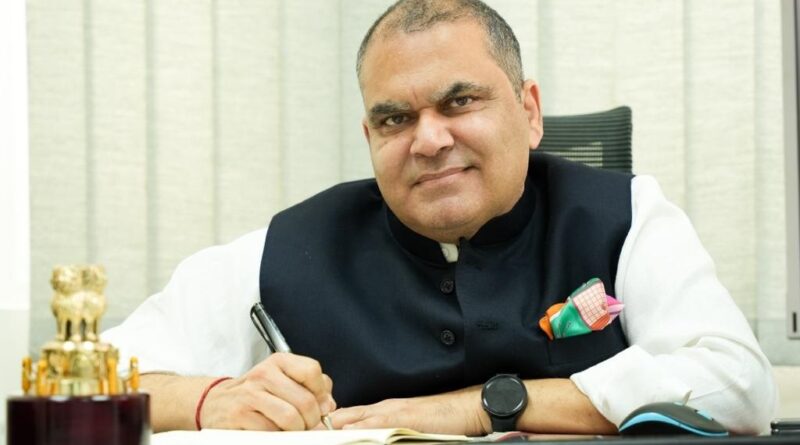Minister replies to questions on capping of medical charges asked by Arora
Ludhiana: MP (Rajya Sabha) from Ludhiana Sanjeev Arora has recently raised the issue of capping of medical charges on the floor of Rajya Sabha asking whether the government has capped knee implants and stents.
Arora, however, pointed out that hospitals have increased their own charges and hence the patient did not get any relief when charges were capped for stents and knee implants. He also asked about the steps taken by the government to ensure that whenever there is capping of rates for medical devices, procedure charges be also capped.
Replying to Arora’s question, the Minister of State for Health and Family Welfare Dr Bharati Pravin Pawar stated that the National List of Essential Medicines (NLEM) published by the Ministry of Health and Family Welfare is incorporated in Schedule-I of the Drugs (Price Control) Order. National Pharmaceutical Pricing Authority (NPPA) under Department of Pharmaceuticals (DoP) fixes the ceiling price of these scheduled medicines specified in the Schedule-I of the Drugs (Prices Control) Order, 2013 (DPCO, 2013) as per the extant provisions of the DPCO, 2013. Further, in case of extraordinary circumstances DPCO, 2013 provides for fixation of ceiling or retail price of any drugs in public interest for such period as it may deem fit.
Giving this information, Arora said the Minister further replied that as informed by Department of Pharmaceuticals, NPPA has fixed the ceiling price of the Coronary stents – [Bare Metal Stents (BMS) and Drug Eluting Stents (DES] included in the National List of Essential Medicine for the first time on 19th July 2016 and incorporated by Department of Pharmaceuticals (DoP) as part of Schedule-I of Drug Price Control Order, 2013 (DPCO, 2013) on 21st December 2016.
Arora said the Minister further informed that Knee implants are non-scheduled medical devices. The NPPA vide order dated 16th August 2017 notified the ceiling prices of orthopaedic knee implants for knee replacement system under the provisions of Para 19 of DPCO, 2013. Recent notification in this regard is dated 15th Sept 2022 vide which the validity of the notification has been extended up to 15th Sept 2023.
The Minister, in his reply, also mentioned that the Government of India has enacted the Clinical Establishments (Registration and Regulation) Act, 2010 (CE Act, 2010) and notified Clinical Establishments (Central Government) Rules, 2012 for registration and regulation of clinical establishments (both Government and Private) in the country. The National Council for Clinical Establishments has developed a standard list of medical procedures and a standard template for costing of medical procedures and shared the same with the States / UTs for their guidance and suitable implementation. Further, a Charter of Patients’ Rights has been shared with all States/UTs for adoption and implementation, so that grievances and concerns of patients are addressed while ensuring a smooth and cordial environment in clinical establishments.
Arora said the Minister further mentioned in his reply that health is a state subject, hence it is the primary responsibility of the State/Union Territory (UT) Government to take appropriate steps to protect patients from instances of exploitation by health facilities including hospital charges.
Meanwhile, Arora stressed upon the need that people should know about Patients’ Rights. He said NGOs should come forward for create mass awareness in this regard.


